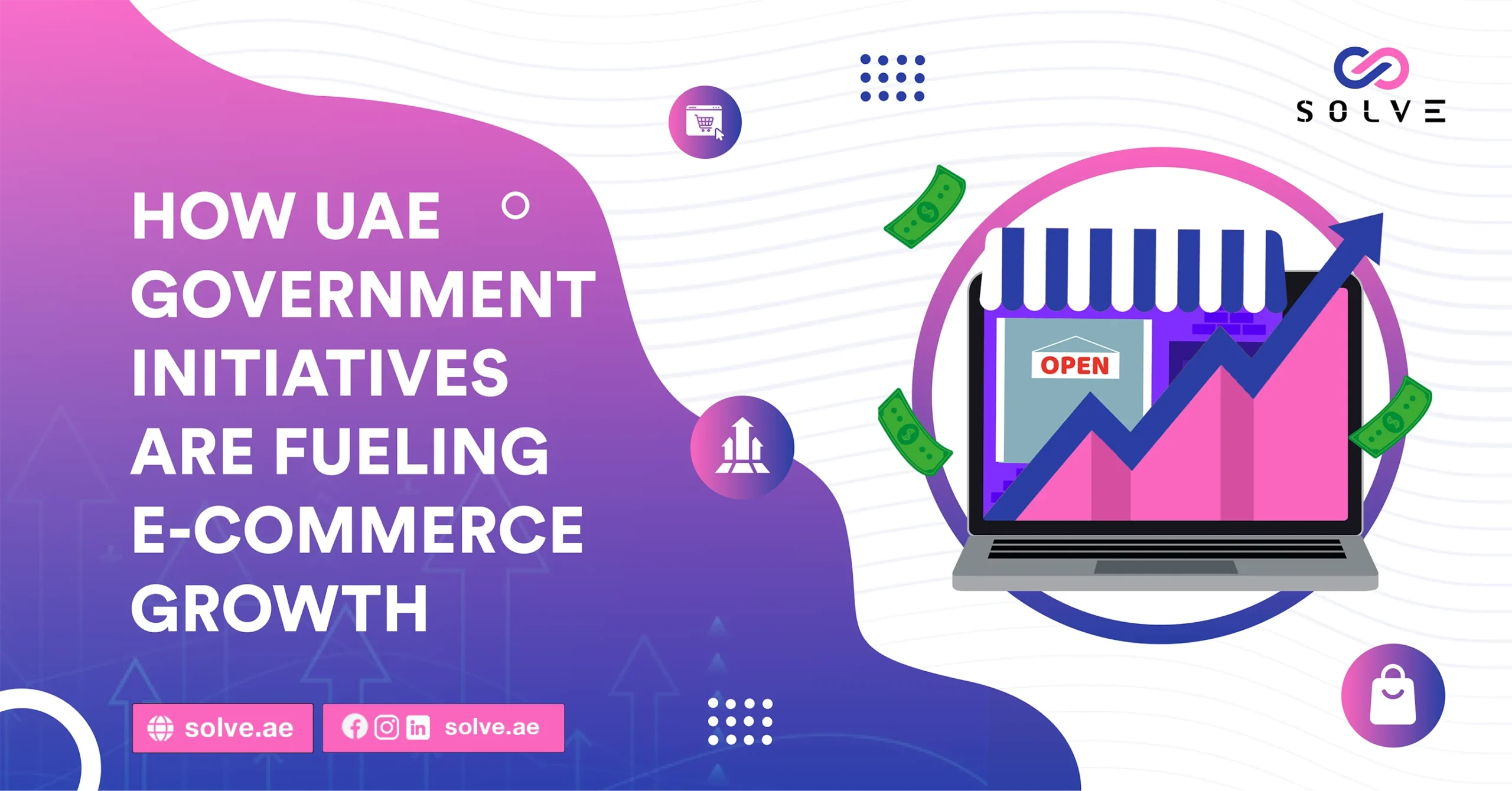- By Vanshika Choudhary
- May 3, 2025
The United Arab Emirates, or UAE, is fast becoming an e-commerce superpower in the Middle East and is very much aided in this regard by various government initiatives, infrastructure, and a techno-savvy population. The government has played an important role in enhancing the growth of e-commerce by setting up a favorable regulatory environment for e-commerce, encouraging the spirit of start-ups, and investing heavily in digital transformation. This blog discusses how UAE government initiatives continue to be the wind beneath the wings of this growth story, to the underlying future of digital commerce.
Government Digital Transformation Strategy
The UAE government has made provisions under strategic visions for e-commerce and, inter alia, digital transformation. It has put highlights on regulatory reforms, digital service integrations, and policies that build trust and ease doing business online. These are continuous towards providing readily available grounds for accelerating innovation and widespread e-commerce adoption. It is very important to understand this position to appreciate and comprehend the government’s role as a catalyst for growth.
UAE National Digital Government Strategy 2025:
Furthermore, the idea is to replicate digital transformation within all government sectors. In the process, it thus hopes to forge an uninterrupted digital ecosystem supporting e-commerce growth. The newly introduced cross-sectoral collaboration will enhance service delivery and increase efficiency, creating an environment conducive for businesses and consumers alike to transact online.
Integration of e-government services: E-government services have included many public services relating to licensing, visa issuance, utility billing, etc. in their online services. This single event boosts consumer confidence in making digital transactions, so competition in e-commerce is encouraged.
Regulatory frameworks: The UAE has established clear and supportive e-commerce regulations, including regulations applicable to free zones. These regulations facilitate foreign direct investments and protect consumer rights, fostering a trustworthy environment for businesses operating online.
Tax breaks and ownership laws: By conferring 0% corporate taxation, 100% foreign ownership, and free capital flow, the environment becomes relatively more attractive for international e-commerce companies and investors, thus creating competitive market settings.
Infrastructure And Logistics Support
Additionally, how much more efficient their infrastructure and logistics are much more timely and smoother operations in e-commerce. This very part in the discussion would encapsulate investment by the UAE into the free zones, such as advanced networks, their smart city initiatives, etc., all of which tie up into quite fast-moving, reliable, scalable e-commerce services. All of these assets will affect customers and dovetail with business scalability.
Dubai CommerCity Free Zone: This e-commerce-dedicated environment with fast and automated business registration, licensing spots, and provision of the utmost needed e-commerce services of payment gateways and marketing tools will help businesses fast-track scaling.
Logistics On An Advanced Level: The UAE has world-class logistics infrastructures that assure the last-mile delivery as the secret success recipe of any e-commerce business wanting to shine will do so with all possible smart technologies and automation support.
Hyperlocal delivery services: Government-sustained encouragement of various delivery models, such as same-day or one-hour services, caters to consumer preferences for speed and convenience, thereby adding value to the entire shopping experience.
Smart city initiatives: The application of smart technologies for urban planning goes hand in hand with the seamless operation of digital commerce and logistics management, thereby establishing the UAE as the e-commerce hub of the future.
Support for Startups and Innovation
Start-ups stimulate competition and innovation within e-commerce. Such a heading deals with government programs that fund, provide technical assistance, and network startups to promote such entrepreneurship in advanced technologies such as AI. Thus, one can say that the UAE works towards an extremely active ecosystem that continues evolving and improving continuously.
Funding and incentives: Also, the government has many grants, subsidies, and incentives, the purpose of which is to increase the implementation of innovation and entrepreneurship concerning startups in the e-commerce sector.
Providing technology and talent access: Initiatives can give access to web developers and marketing professionals, as well as digital payment service providers, in a system aligned with the needs of e-commerce businesses. Check out our latest blog post on Top E-Commerce Business Opportunities in the UAE for 2025
Networking and events: The regular government-supported events and forums all encourage cooperation and knowledge stimulating towards innovations and continuous improvement in e-commerce.
AI and automation focus: The UAE pursues the use of AI-driven tools for providing personal shopping experiences and making automated logistics for improved operations and customer satisfaction.
Consumer-centric policies and adaptation of the markets
Sustaining growth in e-commerce relies mainly on consumer trust and market relevance. This section elaborates on the government’s efforts to promote digital literacy and enforce security standards while embracing localization to align with diverse consumer needs. Thus, the policies will safeguard accessibility and thrive in the e-commerce marketplace.
Mainstreaming and dialect support: The government specified internet marketing in different languages, especially Arabic, to make online shopping more accessible to and attractive to consumers within the local population.
Security and trust-building measures: These target measures and regulations for cybersecurity improvement and payment security, besides redressing issues on trust by the consumers toward online transactions.
Promotion of digital literacy: Programs in the government are aimed at improving digital skills amongst the population so that e-commerce would feel comfortable with a greater number of citizens participating.
Facilitating cross-border e-commerce: The policies promote international trade and cross-border transactions, making it easier for consumers to access a diverse range of products and helping to strengthen the UAE’s image as a leading global e-commerce marketplace.
Conclusion
The comprehensive efforts adopted by the government of theE—which range from policy reform, infrastructure development, and startup support to consumer protection—are creating a fertile ground for the flourishing of e-commerce. These initiatives stimulate innovation, ensure seamless digital experiences, and build trust; Contact us as they fuel the ongoing consumer boom and put the UAE in a position to be a relevant and global player in digital commerce for years to come. Such an ongoing commitment to digital transformation holds vibrant prospects for future businesses and shoppers in the e-commerce landscape of the UAE.




